Everyone is familiar with Van Gogh’s most famous work, Sunflowers, which immortalised these beautiful yellow blooms. This iconic work, inspired by Provence and its sunny landscapes is enough to transport you to the South of France. To find out what to do in Provence during your holiday, Le Collectionist has traced the life of Van Gogh through Provence.
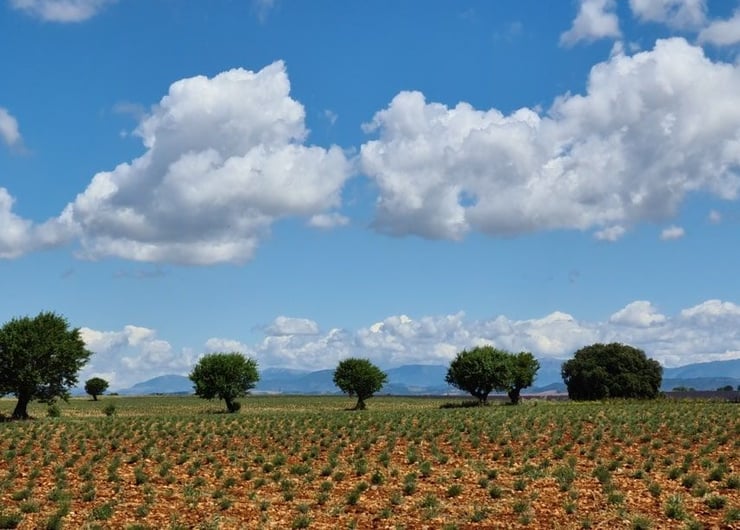
VAN GOGH IN PROVENCE: THE LIFE OF AN EXCEPTIONAL ARTIST
Here are some essential places in the life and work of Vincent Van Gogh to visit during your stay in Provence:
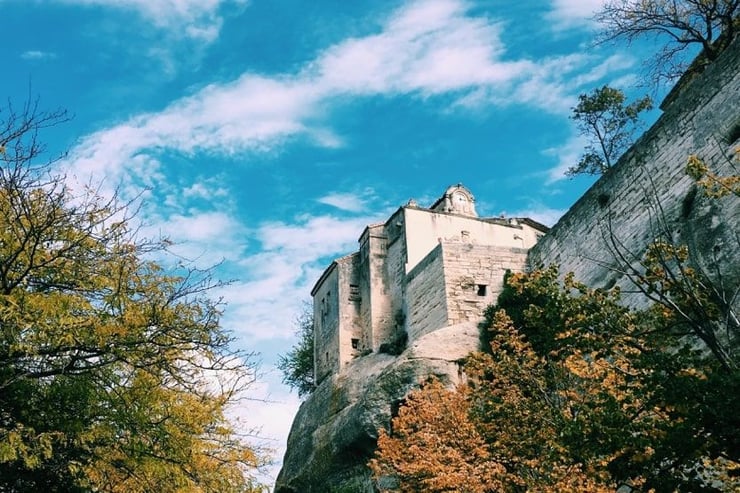
First Stop : Arles
Meet with Vincent Van Gogh
Begin your journey in the footsteps of Van Gogh by discovering the city of Arles, where he lived in 1888. Walk along the shores of the Rhône and venture into the colourful alleyways. At the corner of a square in the Vavalerie district, you will encounter a famous house.
The Yellow House, where the artist stayed with his contemporary, Paul Gauguin, has been immortalised in an oil painting of the same name. It is easy to see how the colourful façade, contrasting with the deep blue of the Provençal sky, inspired Van Gogh to create some of his most famous works.
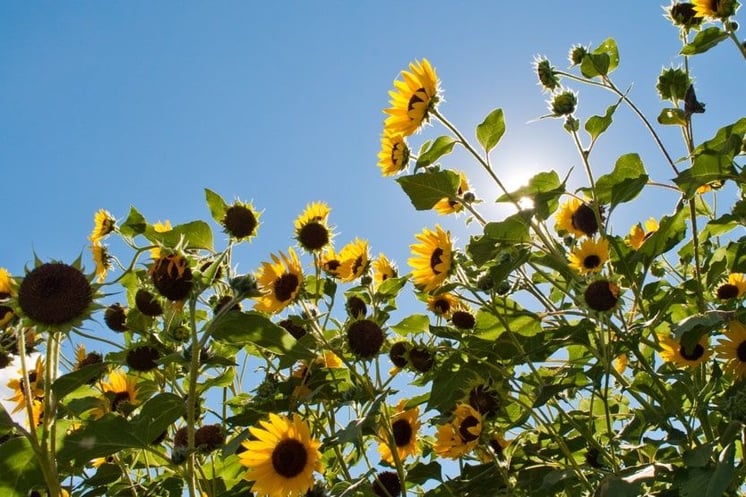
Next, make your way towards the Arles Amphitheatre, which will transport you even further through time. History lovers will soak up the unique atmosphere of this place, but bohemians will be drawn to the Café Van Gogh, only a few steps away. The terrace of this café on the Place du Forum was made iconic by the painting “Terrasse de Café le Soir,” painted in September 1888. Whether illuminated by sunlight or starlight, the café is always bustling and animated by the rhythm of clinking glasses of pastis.
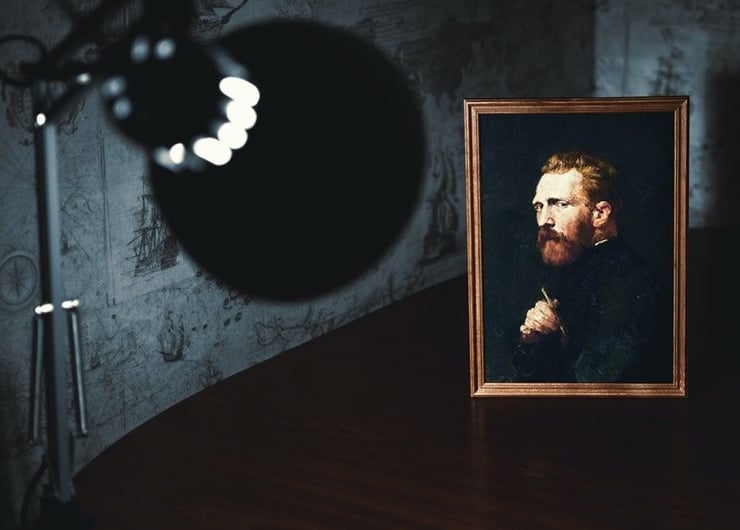
The next stop on your tour is the former Hôtel Dieu. The artist was hospitalised there after cutting off his ear. Today, the hospital has been renamed after its famous patient, but its tree-lined gardens have remained the same, regularly hosting art and photography exhibitions.
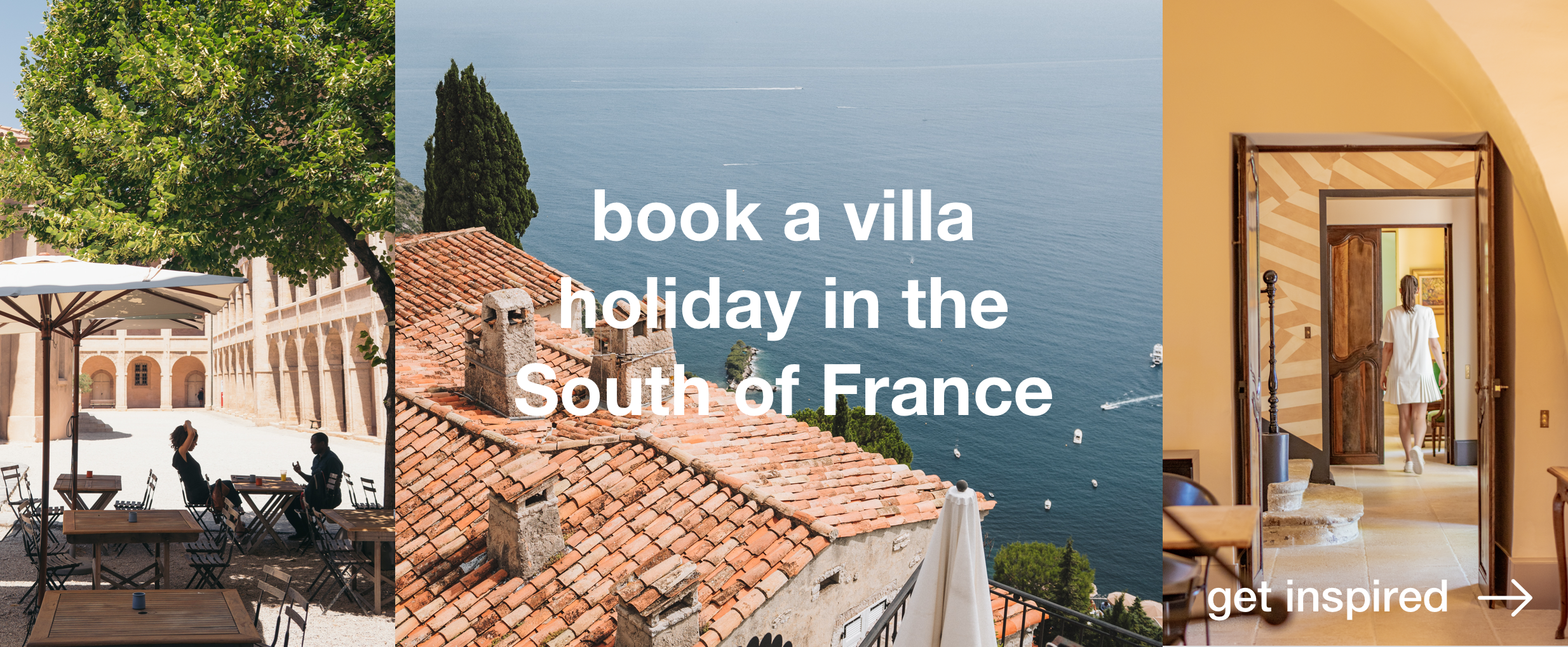
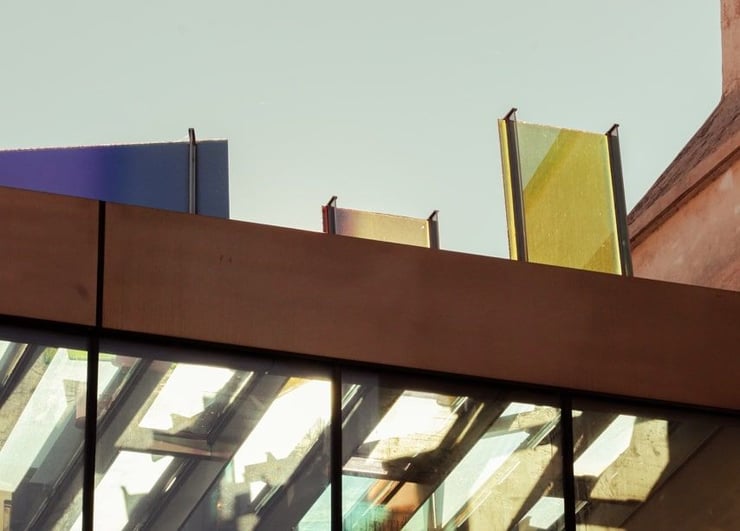
Finally, visit the Van Gogh Foundation in Arles to admire some of the painter’s famous works, formally reserved for visitors of the Van Gogh Museum in Amsterdam. The foundation presents temporary exhibitions focusing on different periods of the artist’s life.
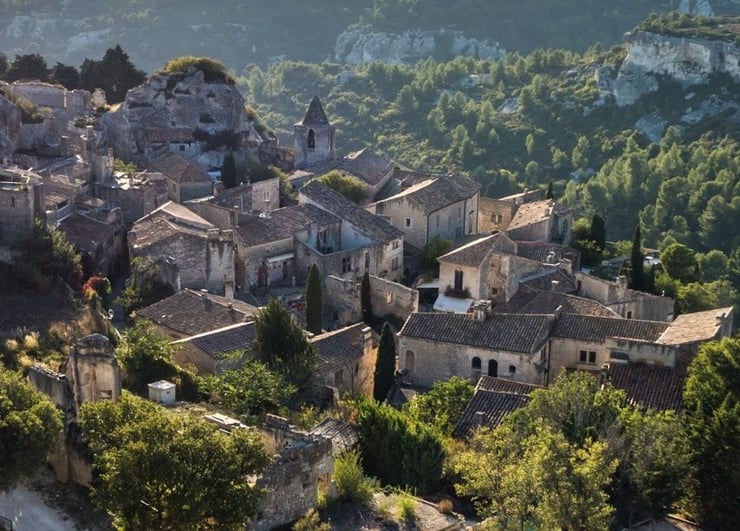
Second Stop : Les Baux-de-Provence
In the Light of the Alpilles
After visiting Arles and being introduced to the artist’s passion for this gorgeous region, continue your journey on the roads of Provence. Journey away from the sea to Les-Baux-de-Provence, a small village perched in the heart of the Alpilles.
Although the painter did not live there, the area is nonetheless marked by his influence. Rays of golden sunlight cast a surreal light over the village, reminiscent of the artist’s brushstrokes. Don’t forget the Carrières de Lumières, a cultural landmark in Provence depicted in “The Starry Night,” to see his famous work brought to life.
The Vang Gogh exhibition in Les Baux-de-Provence is now over, but we still recommend that art lovers stop by. You can admire the works of Paul Cézanne, a contemporary of Van Gogh, who was also bewitched by Provençal landscapes and the art of living. You can also visit the Château des Baux-de-Provence, the highest point in the village. Climb to the top of its towers to find a breathtaking view of the Alpilles natural park.
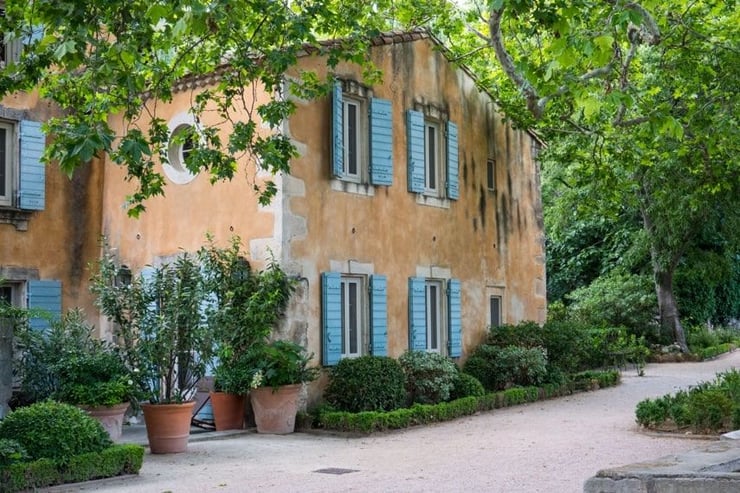
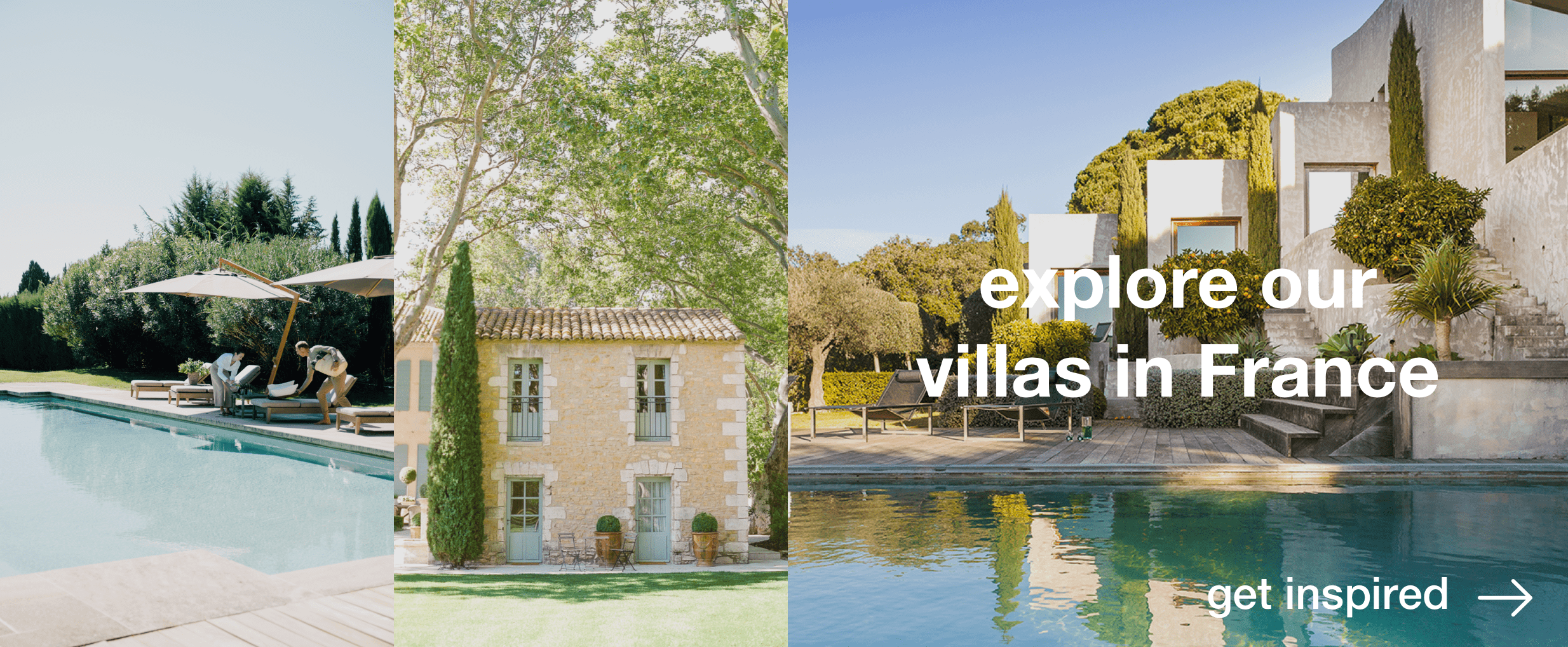
Third stop: saint-rémy-de-provence
Behind Closed Doors
In May 1889, Van Gogh left the Hôtel Dieu in Arles to take refuge in the asylum of Saint-Paul-de-Mausole, in Saint-Rémy-de-Provence. At Le Collectionist, we would opt for a magnificent country house in the heart of the Alpilles.
Artistic souls will fall under the spell of Man Ferrière, and ancient stone building for rent exclusively on Le Collectionist. This completely renovated home combines classic style with quirky details. It is ideally located in the heart of Saint-Rémy-de-Provence. Leave your car behind and set off on your journey to follow in the footsteps of Van Gogh.
Whether walking through the streets of the village or admiring the view of the Provençal countryside, you will quickly understand why this region inspired the artist so much. It was indeed during his visit to Saint-Rémy-de-Provence that Van Gogh produced the greatest number of his works.
Like him, we fall in love with the fields of wheat and wild grasses, gilded by the sun. In front of the deep, green cypresses, which pierce the immaculate sky of Southern France, soft spots of mauve form in the bronze landscape.
The best way to discover this area is to follow the Route de Van Gogh. This pedestrian path goes from the historic centre of Saint-Rémy-de-Provence to the Cloister of Saint-Paul-de-Mauseole, where he stayed. This hour-long hike is punctuated by copies of Van Gogh's paintings, which you will have plenty of time to compare with the original inspirations of the countryside.
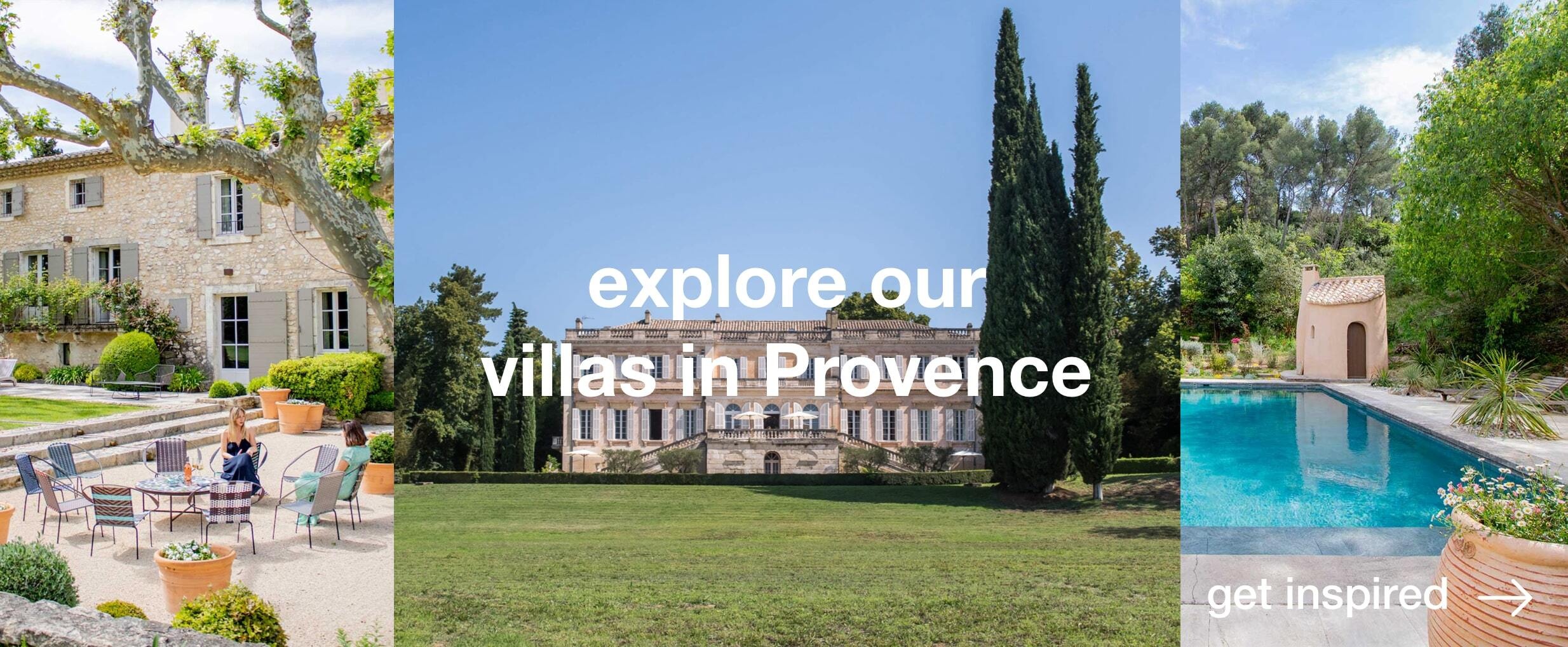
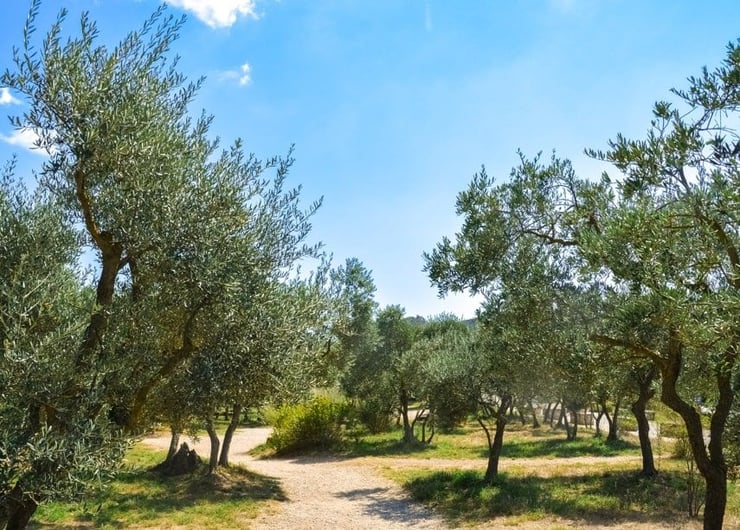
Experience an exceptional holiday with Le Collectionist. Our team of experts has selected the most beautiful destinations, landscapes, and cities that have inspired great artists. With Le Collectionist, renting villas in Provence has never been easier. Get ready to relax, and let yourself be carried away by the magic of Provence
